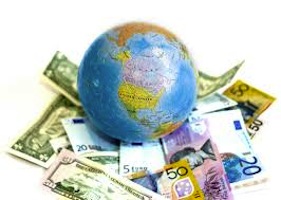Everyone take a deep breath. This isn’t 2007 again. The banks aren’t loaded with $10 trillion in “toxic” mortgage-backed securities, the housing market hasn’t fallen off a…

European Central Bank

Jack Rasmus comments on the worried commentary about the global economy today coming out of this week’s World Economic Forum in Davos, Switzerland. The annual…

William White is one of the world’s top economists. He was the head economist for the Bank for International Settlements (BIS) – the world’s most…

Gerald Celente breaks down how the talking airheads on business broadcast media keep missing the larger picture of crumbling worldwide economies and the undeniable underlying…

Americans are living right on the edge — at least when it comes to financial planning. Approximately 62% of Americans have less than $1,000 in…

After an eventful 2015, where we witnessed the first US rate hike in 9 years, crude oil dropping to 6 year lows, a dramatic selloff…

The move raises critical questions about the global economy for 2016, already slowing significantly since 2014. Further global slowdown is now almost certain in 2016…

Did you know that there are 5 “too big to fail” banks in the United States that eachhave exposure to derivatives contracts that is in excess…

The following text is an English transcript (translation) of an RT Berlin Interview in German regarding an apparent secret agreement between the European Central Bank (ECB)…

Updates on FED's interest rate hike, Peter Drucker on "like a business," gun business, and oil economics. Response to question on whether it is China…

Jack Rasmus looks at yesterday’s decision by the European Central Bank to make token changes to its QE policies, Japan’s central bank rumors of more…

As European central banks employ negative interest rates (you pay the bank to keep your money) as well as all-digital currencies that give bankers virtually…
